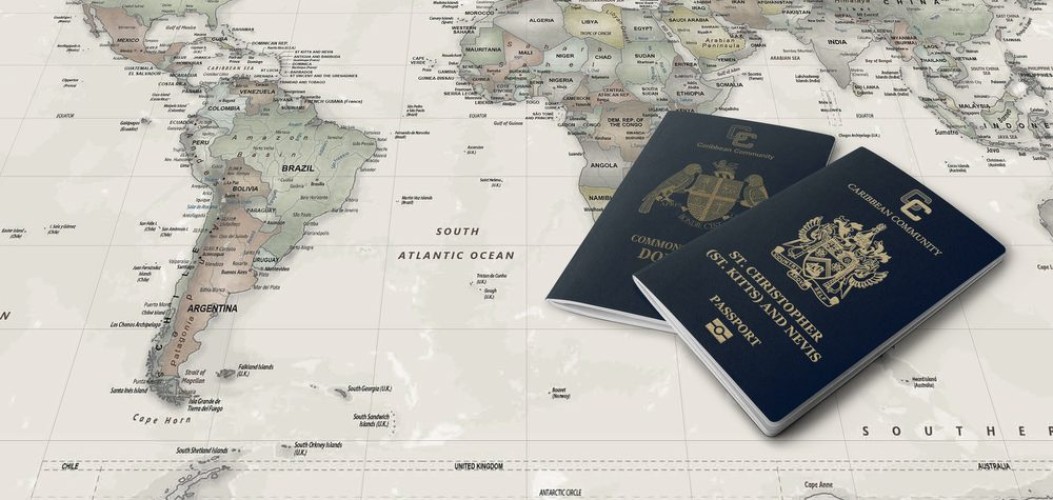A global tide of relocation is washing over the world, driven by aspirations for a better life. This trend is exemplified by the steadily rising applications for Israeli citizenship. Acquiring a second passport unlocks a treasure trove of benefits, like the ability to navigate borders with ease, secure financial stability, and invest in superior education and medical facilities.
Beyond the practical advantages, factors like pleasant weather, a thriving society, and a low crime rate act as alluring magnets. For some, repatriation also represents a powerful homecoming, reconnecting with their ancestral roots. Forbes reports that 2023 saw a record influx of migrants, drawn to Israel’s unique blend of opportunity and heritage.
The number of individuals entering Israel in 2022 doubled compared to the previous year, even with gradually more stringent procedures. For instance, emergency applications are no longer considered. Keep reading to learn more about the process of successful repatriation. The trend continued in 2023 and 2024.
A Roadmap To Citizenship
Many believe Israeli citizenship runs in the blood, though this only extends to three generations.
For those with Jewish heritage, becoming a citizen often represents a deeply held dream. Confirming repatriation rights can involve certain hurdles.
When seeking Israeli citizenship, referring to the nation’s legal framework is crucial.
Ongoing laws outline several paths to Jewish citizenship, like naturalization, affiliation via marriage or descent, and the Law of Return, familiar to many navigating immigration complexities.
Who Can Apply For Israeli Citizenship
| Repatriation Under the Law of Return | For people of Jewish descent, the Law of Return offers the most direct route. Enacted in 1950, it grants descendants of Jewish grandparents the right to repatriate. However, intricacies exist. Not all third-generation Jews qualify to petition for their minor children’s citizenship, leaving them with only residency permits until adulthood. |
| Marriage as a Gateway | Spouses of individuals who have Israeli citizenship can apply for their passports, but only after residing in Israel for over five years. Be aware of strict checks for “marriage of convenience.” |
| Military Service | Individuals who have been in the national Defense Forces and meet specific criteria qualify for simplified naturalization under Art. 6 of the Citizenship Law. |
While various paths exist, this procedure is quite lengthy, regardless of the option you select.
Immigration
Repatriation, also known as Aliyah, allows individuals of Jewish descent to go back to their motherland and acquire citizenship based on their heritage. Proving Jewish roots is essential, along with undergoing a designated procedure to confirm your status.
The algorithm of gaining citizenship as a result of repatriation requires nuanced consideration. While the jurisdictional system grants this right to Jews up to the third generation and those recognized as Jewish under Halakha (religious law), specific categories deserve clarification:
- Kids and grandchildren of Jews;
- Those who have legally become spouses of Jews;
- Widows of Jews (unmarried).
Remember that Jewish nationality is traditionally passed down via the maternal line. If your mother is Jewish, you can be recognized as Jewish based on this tradition. Even if your grandfather had another nationality, you still qualify for Aliyah if your mother was Jewish.
To proceed with Aliyah and obtain Israeli citizenship, certain requirements must be met:
- Relatives of early immigrants. People with relatives who arrived in the country before March 19th, 1970, and hold a residence permit qualify.
- Unregistered Jews. Individuals who weren’t registered as Jews but can prove their heritage through documentation.
- Descended from eligible individuals. Those whose ancestors qualified for citizenship but never underwent the naturalization process.
To apply for Israeli citizenship under Section A4, fill out the Israeli citizenship form and clearly mark your intention for Section A4.
Here’s how to prove your Jewish heritage:
- Pre-1987 documents. If you have papers issued before 1987 with a “nationality” section that matches your passport, they can be used as proof.
- Relative’s documents. Official documents from a relative like their passports, or house registry extracts, showing their Jewish nationality, can also be used.
- Supplementary evidence. Less substantial evidence includes work/school files, burial certificates from Jewish cemeteries, or photos of relatives in traditional Jewish clothing.
- Deceased relatives. If using a deceased relative’s documents, attain their death certificate first.
- Power of attorney. It’s essential for evidence from the immediate family.
Birth or Adoption
Under current legislation, children born to at least one Jewish parent automatically qualify for Israeli citizenship. Nonetheless, unmarried or separated parents at the time of birth might face particular hurdles. In such cases, the Ministry of Interior may request additional proof, often through DNA testing, to resolve any ambiguity.
For children born outside Israel, parents should provide information about the infant to the nearest Israeli embassy within one month of birth. Failure to do so might lead to future registration complications.
Officially adopted children of Jewish parents are eligible for Israeli citizenship. Crucially, the adoption has to be done before the kid turns 13 for the request to be approved.
For minors, the procedure to citizenship starts with their legal guardian. This individual, acting on the child’s behalf, needs to present a formal application package to local immigration authorities. This package typically includes:
- Proof of guardianship. Identification document of the individual representing the applicant.
- Travel documents. Passports for both the minor and the person representing them.
- Parental consent. Official permission from both parents, ideally notarized by a legal professional.
- The official form where the request for citizenship is submitted.
If the child resides with only one parent, an additional document confirming sole custody is necessary.
For adult children who weren’t born in Israel, the path hinges on establishing their parent’s Jewish heritage through documented evidence. Individuals who fall within this age range and were born within Israel’s territory need to undergo a specific process to verify their citizenship status.
Naturalization
Aspiring residents who don’t possess Jewish lineage can navigate the naturalization path towards attaining Israeli citizenship. This journey, often referred to as “acclimatization,” entails fulfilling specific requirements:
- Reaching the legal adulthood age of 18.
- Maintaining residency within Israel for a minimum of three consecutive years.
- Demonstrating consistent income that meets specific thresholds.
- Possessing permanent resident status within the country.
- Successfully passing an examination validating proficiency in the Hebrew language.
Additionally, applicants must renounce any prior citizenship and possess an Israeli identity card. Attaining a “center of life” certificate, detailing residence, employment, and future plans, is also mandatory.
The application fee is currently 170 ILS, subject to change. Consult the Ministry of Interior for the latest information.
Marriage
For individuals married to Israeli citizens, the path to citizenship often passes through spousal visas. These visas grant residency rights and offer a potential pathway to full citizenship after fulfilling specific requirements.
One such requirement is cohabitation within Israeli borders for at least five years. During this period, the marriage certificate serves as a crucial document demonstrating the couple’s marital status. However, simply presenting the papers isn’t enough.
Officials must conduct annual interviews to assess the genuineness of the marital union. These interviews aim to uncover potential instances of sham marriages undertaken solely for immigration purposes.
To ensure a smooth interview process and boost the likelihood of a positive outcome, consulting an immigration specialist is highly recommended. Their expertise can guide couples through the necessary preparation, including gathering the required documentation and anticipating potential interview questions.
Dual Nationality
Israel embraces its citizens’ right to hold multiple passports, allowing individuals to navigate two nations with ease. This “dual citizenship” status opens doors for Israeli repatriates, empowering them to act as representatives of both states.
Within Israel, a repatriate with dual nationality enjoys unrestricted access to government services, financial institutions, and employment opportunities. They can seamlessly integrate into life as a resident, exercising all the privileges afforded to any Israeli citizen.
After crossing the border, a person gets an Israeli passport alongside a visa. This officially registers their dual nationality status. However, the official algorithm of attaining dual citizenship, involving documentation and application endorsement, typically takes around 12 months. Individual timelines may vary, potentially exceeding or falling short of this estimate.
Essential Israeli Citizenship Terms
Beginning your journey in Israel means encountering unique terms. Here’s a handy guide for newcomers (“Olim Hadashim”) who’ve completed Hebrew immersion in an “Ulpan” and are starting to settle in:
Identity and documentation:
- Teudat Zehut: Your primary ID card, the Israeli passport.
- Teudat Oleh: A certificate confirming your new repatriate status, granting access to advantages.
- Teudat Maavar: Travel document enabling movement within and outside Israel.
- Darkon: Passport without residency, issued in another state.
Integration and support:
- Sal Klita: The institution offering financial aid to new arrivals through the “Absorption Basket” and Ulpan study funding.
- Misrad Ha-Pnim: The official name of the Ministry of Interior.
- Korot Chaim: A job-seeking tool, your “work CV” or “labor autobiography.”
- Mashkanta: Preferential government-backed loan for repatriates purchasing a home.
Social security and healthcare:
- Bituach Leumi: Responsible for social insurance and various benefits.
- Kibbutz: An agricultural community with unique governance and values, promoting collectivism and shared resources.
- Health Insurance Funds: Select between Clalit, Maccabi, Meuhedet, and Leumit.
Banking and finance:
- Kartis: Bank card.
- Kartis Ashrae: Credit card.
- Heshbon: Bank account.
- Mezuman: Cash.
- Kesef: Money.
- Shem Mishtamesh ve Letters: Basic data for online banking.
- Snif: Bank branch.
- Avarat Kesef: Financial transactions.
Attaining Israeli Citizenship
Facing the complexities of Israeli citizenship acquisition without legal expertise can be daunting. The Ministry of Internal Affairs’ broad powers and potential for procedural hurdles can be overwhelming, especially for those unfamiliar with immigration intricacies. This often stems from a vigilant approach to preventing potential misuse of citizenship pathways.
Our team boasts extensive experience in Israeli immigration law. We offer assistance in comprehensive document package preparation that optimizes your chances of a successful application. Partnering with us empowers you to navigate the process with confidence and clarity. Our commitment to client satisfaction ensures we relentlessly pursue the best possible outcome for each individual.
Motivations For Changing Citizenship
The decision to switch allegiances isn’t taken lightly. People do this for diverse reasons, woven from threads of economic aspirations, political realities, and personal desires.
Economics often beckons with promises of greener pastures. Individuals might seek better job prospects, higher salaries, or a more affordable lifestyle in a new nation.
Political aspects can also nudge individuals to seek new horizons. Those escaping persecution, yearning for stability, or drawn to specific ideologies like democracy or human rights protections might find a new homeland more welcoming.
Personal yearning plays its part as well. Family ties across borders, the allure of unfamiliar cultures, or a thirst for fresh experiences can motivate a shift in citizenship.
Beyond these core reasons, pragmatic considerations can hold weight. Access to exclusive opportunities like voting rights, visa-free travel, or specific opportunities tied to a particular passport can sway individuals.
Ultimately, the decision to change citizenship is a complex tapestry woven from individual circumstances, aspirations, and the promise of a brighter tomorrow under a different flag.
Professional Assistance
Our company boasts in-depth expertise in Israeli citizenship matters, guaranteeing you exceptional service and support every step of the way. You’ll be assigned an individual assistant, often with firsthand experience fulfilling the repatriation program themselves, eager to share their insights and guide you on your journey.
Each of our managers can assist the following categories of clients:
- Jews worldwide seeking reunification with their ancestral motherland.
- Applicants in gathering and verifying documentary confirmation of Jewish heritage.
- Individuals accomplishing a smooth consular interview experience.
- New repatriates in resolving post-arrival challenges.
By partnering with knowledgeable experts, you’ll avoid unnecessary hurdles, conserve precious time and emotional energy, and increase your chances of securing Israeli citizenship on the first application.








